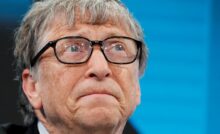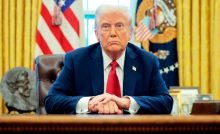“Remaining in positions smashed to pieces over many monthsjust for the sake of staying there does not make sense,” Gaidaisaid on Ukrainian television.
The withdrawal from Sievierodonetsk would mark the biggest reversal for Ukraine since the loss of the southern port of Mariupol in May.
The latest Russian advances appeared to bring the Kremlincloser to taking full control of Luhansk, one of Moscow’s statedwar objectives, and set the stage for Sievierodonetsk’s twincity of Lysychansk to become the next main focus of fighting.
Vitaly Kiselev, an official in the Interior Ministry of theseparatist Luhansk People’s Republic – recognised only by Russia- told Russia’s TASS news agency that it would take another week and a half to secure full control of Lysychansk.
Russia invaded Ukraine on Feb. 24, but abandoned an earlyadvance on the capital Kyiv in the face of fierce resistancebolstered by Western arms.
Since then Moscow and its proxies have focused on the southand Donbas, an eastern territory made up of Luhansk and itsneighbour Donetsk, deploying overwhelming artillery in some ofthe heaviest ground fighting in Europe since World War Two.
Ukraine on Friday again pressed for more arms, with its topgeneral, Valeriy Zaluzhniy, telling his U.S. counterpart in aphone call that Kyiv needed “fire parity” with Moscow tostabilise the situation in Luhansk.
READ ALSO:
- Slow sex and its benefits, by Tiwa Says
- 2023: Osinbajo under pressure to dump APC, contest on other platform
- Court remands man for lifting woman’s veil without her consent
- 358 Illegal Drug Shops Sealed In FCT Within 4 Days – PCN
‘ORDERLY RETREATS’
South of Sievierodonetsk, Ukrainian soldiers also withdrew from the towns of Hirske and Zolote in the face of overwhelming Russian forces, said Oleksiy Arestovych, an adviser to Ukrainian President Volodymyr Zelenskiy.
Arestovych said the orderly retreat from the towns was a good thing in that it broke with a Soviet and post-Soviet military tradition to never retreat, whatever the circumstances.
He said Ukraine’s military had learnt the hard lesson of trying to defend positions at all cost during battles with pro-Russian forces in 2014.
“Now, for the first time, we have a precedent where our boys retreated in an orderly fashion,” he said in an online video post.
Russian troops had entered Hirske and fully occupied the surrounding district on Friday, municipal head Oleksiy Babchenko said.
“There is a red flag flying over the municipaladministration (in Hirske),” a spokesperson for the regionaladministration told Reuters by telephone.
Ukraine’s foreign minister played down the significance ofthe possible loss of more territory in the Donbas.
“Putin wanted to occupy the Donbas by May 9. We are (there) on June 24 and still fighting. Retreating from a few battlesdoes not mean losing the war at all,” Dmytro Kuleba said in aninterview with the Italian newspaper Corriere della Sera.
The general staff of Ukraine’s armed forces said its troopshad some success in the southern Kherson region, forcing theRussians back from defensive positions near the village ofOlhine, the latest of several Ukrainian counter-assaults.
Ukrainian media showed footage of a school smouldering andgutted by Russian shelling in Avdiivka — a town in Donetskregion just inside Ukrainian-held territory. Reports said theschool had been used as a first aid centre and the attackdestroyed medicine and other supplies.
Reuters could not confirm the details of the fighting.
Russia says it sent troops into Ukraine to degrade itssouthern neighbour’s military capabilities and root out peopleit called dangerous nationalists.
Ukraine, which says Russia has launched an imperial-styleland grab, this week won new support from the West.
The war has had a massive impact on the global economy andEuropean security arrangements, driving up gas, oil and foodprices, pushing the EU to reduce its heavy reliance on Russianenergy and prompting Finland and Sweden to seek NATO membership.
The West has imposed an unprecedented package of sanctions on Russia, its top companies and its business and political elite in response to Moscow’s invasion of Ukraine.
The measures have triggered an exodus of foreign firms, raised the prospect of Russia defaulting on its sovereign debt, and look set to trigger a deep economic contraction.
In a major sign of support, European Union leaders this week approved Ukraine’s formal candidature to join the bloc – a decision that Russia said on Friday amounted to the EU’s “enslaving” neighbouring countries.





